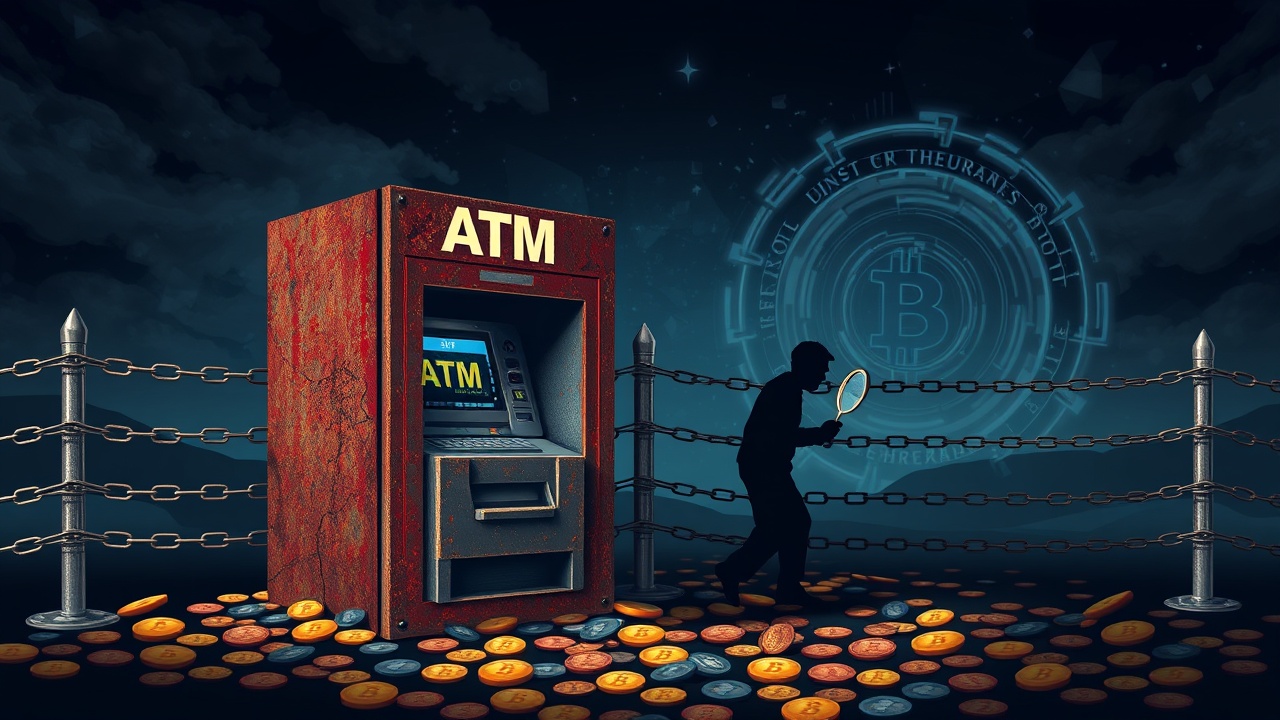The Rise of Cryptocurrency Kiosks
As cryptocurrency rapidly integrates into the financial landscape of the United States, with over 55 million users engaging with digital currencies in their daily transactions, the emergence of virtual currency kiosks, commonly referred to as Bitcoin ATMs, has become increasingly prevalent. These ATMs facilitate a variety of transactions involving cryptocurrencies, enabling users to convert cash into digital currencies or trade coins seamlessly. With the anticipated introduction of stablecoins through legislation like the GENIUS Act, the demand for these kiosks may grow even further.
Challenges and Fraud Risks
However, the rise of cryptocurrency has also attracted malicious actors who exploit the technology for fraudulent schemes. To combat this wave of fraud, some municipalities have opted to ban these kiosks entirely, believing it will enhance community safety. Yet, such an approach is misguided and ineffectively tackles the root problem, placing both users and operators of cryptocurrency services at greater risk.
Fraud targeting crypto ATM users typically involves con artists posing as law enforcement or other authoritative figures, pressuring victims into urgently transferring substantial amounts of money through cryptocurrencies. A notable instance highlighted by Senator Dick Durbin involved a victim who was tricked into depositing $15,000 at a crypto ATM by someone posing as a police officer. The intricacies of these scams are further discussed in the FinCEN Notice dated August 4, 2025, which elaborates on prevalent fraud tactics.
Statistics on Crypto ATM Fraud
Data from the FBI’s 2024 Internet Crime Report reveals a troubling trend, with crypto ATM fraud complaints skyrocketing to over 10,956 cases, resulting in an alarming $246.7 million in losses—a staggering increase of 99% in reported incidents and 31% in financial losses compared to 2023. Although these figures represent only a fragment of the broader $12.5 billion lost to various forms of financial fraud last year, they highlight an urgent issue that warrants attention.
Controversial Bans and Ineffective Strategies
In Spokane, Washington, the decision to ban crypto ATMs was met with controversy, as city officials argued it would mitigate fraud risks. Such a strategy, however, mirrors ineffective efforts in addressing fraud in other domains, like outlawing email to prevent phishing or restricting gift card sales for seniors to thwart scams. The true vulnerability lies in human behavior, not the technology itself. Thus, eliminating crypto ATMs could simply displace fraud into other transaction methods.
Proactive Solutions and User Protections
Rather than imposing blanket restrictions, a more strategic approach involves enhancing user protections at the point of transaction. By introducing measures that inform users about the risks associated with crypto transactions—or by providing warnings against scams—providers can better safeguard against fraud. Successful models from traditional financial systems, such as interventions during wire transfers or ATM withdrawals, demonstrate that such precautions can yield tangible benefits.
Reputable crypto ATM operators are keen on adopting advanced techniques to combat these scams, learning from experiences in fraud prevention and user behavior. To further bolster these efforts, state regulators can mandate that operators implement robust fraud prevention mechanisms as a condition for licensure. Such regulations would incentivize ATM operators to improve user experience while prioritizing consumer safety.
Proactive measures are already being taken by some local governments, like Grosse Pointe Farms in Michigan, which has instituted registration and warning requirements for crypto ATMs, even prior to their presence in the area. This forward-thinking initiative aims to provide essential transparency and assist residents who may lack familiarity with cryptocurrency or common scam tactics.
Conclusion
In conclusion, outright bans on cryptocurrency kiosks will not eradicate fraud and could deprive millions of legitimate users of access to critical financial tools. Instead, regulators should focus on empowering ATM operators to effectively utilize preventative measures against fraud, thereby protecting consumers while promoting the innovative potential of cryptocurrency.
This content is provided for informational purposes only and should not be considered legal or financial advice. The opinions expressed in this article belong to the author and do not represent the views of Cointelegraph.




